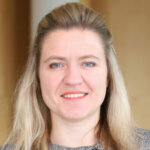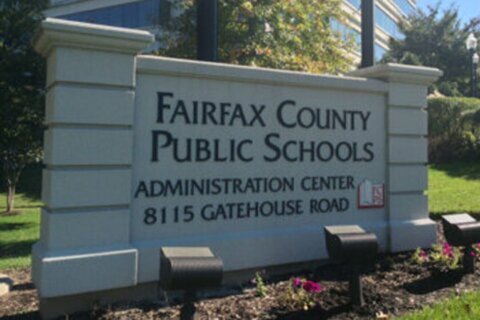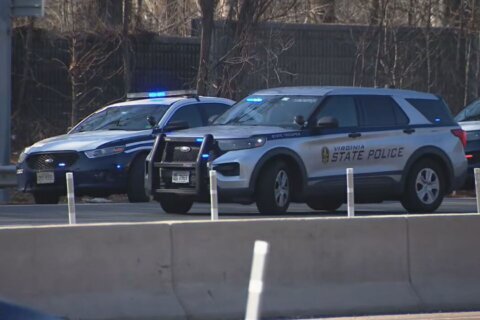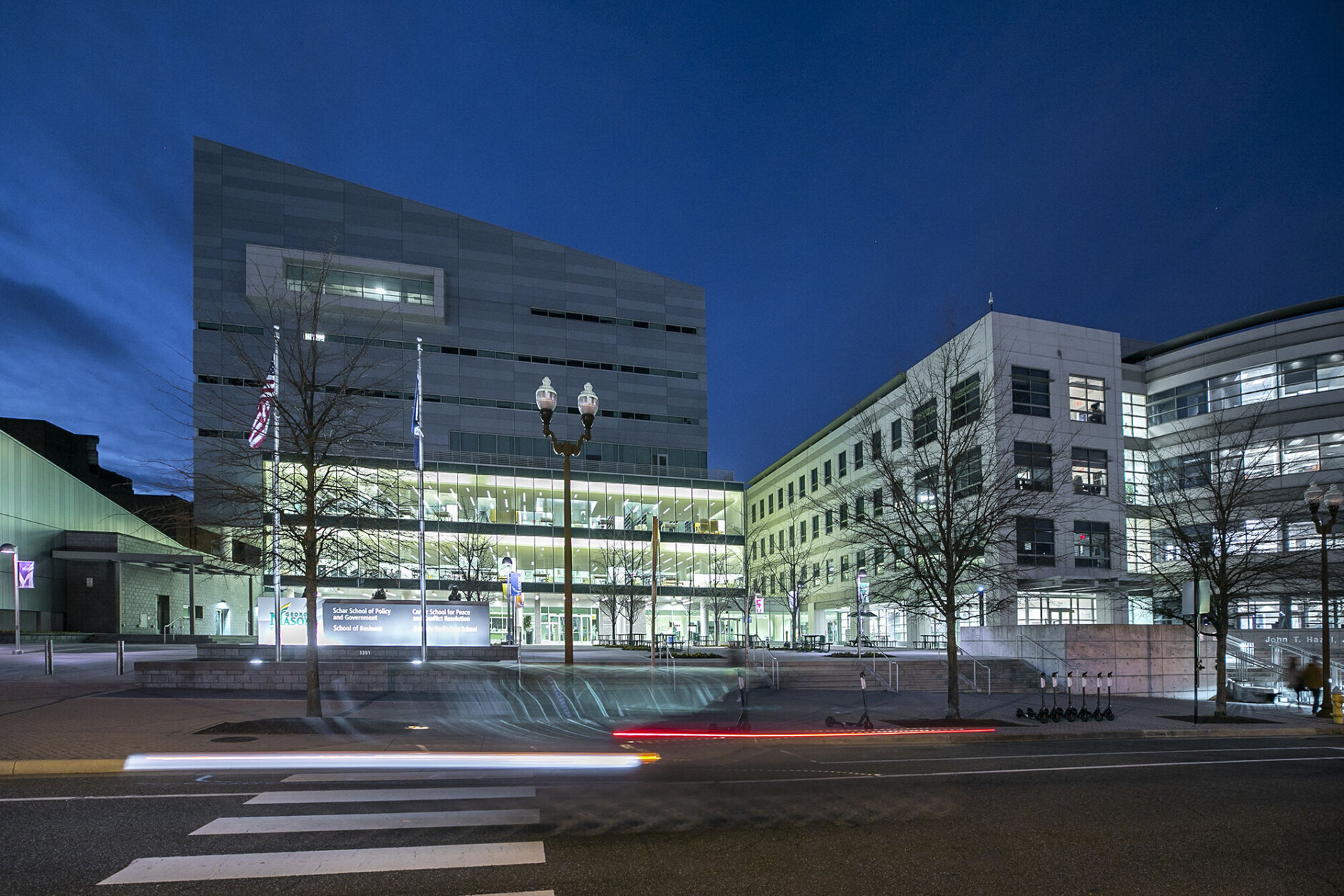
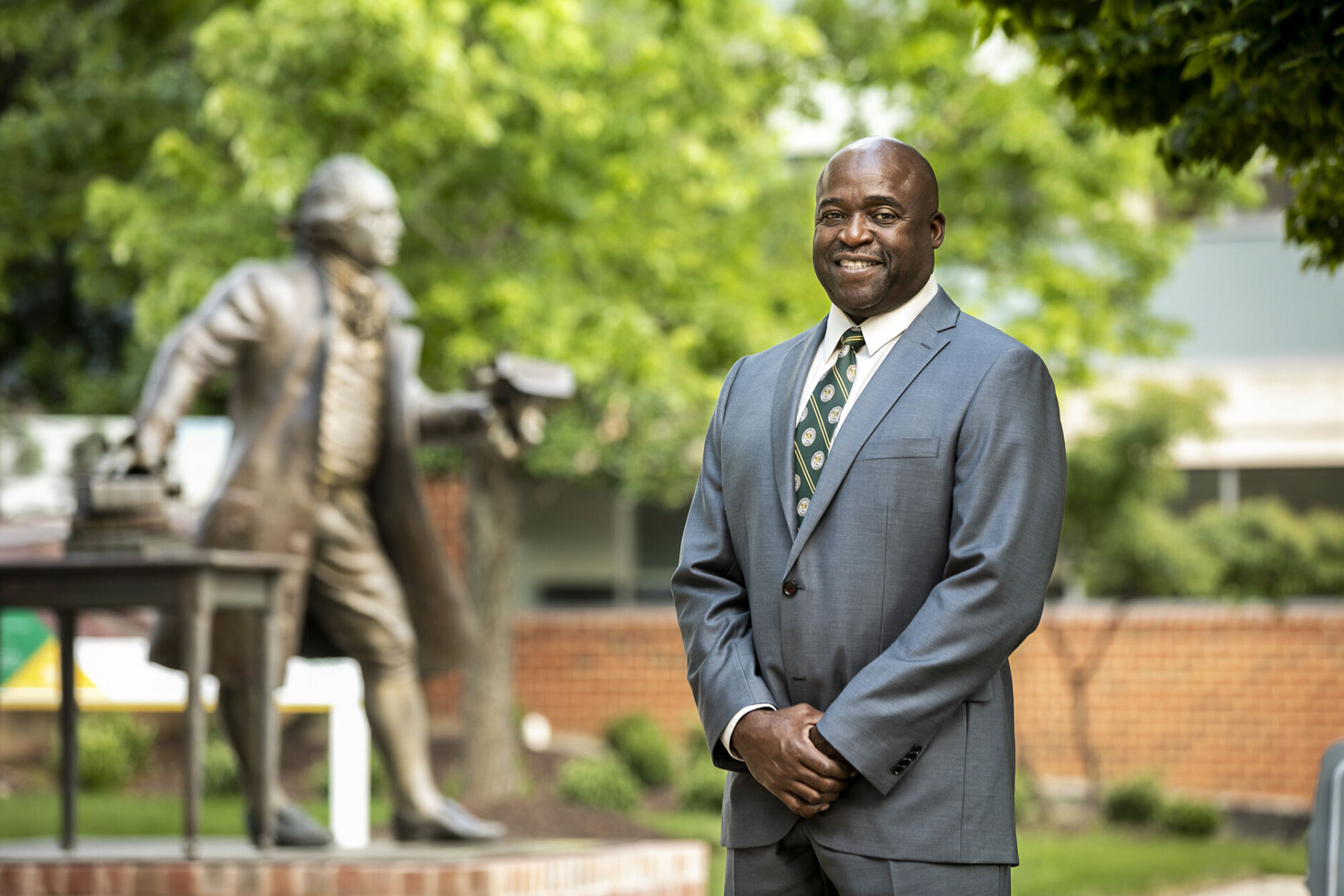
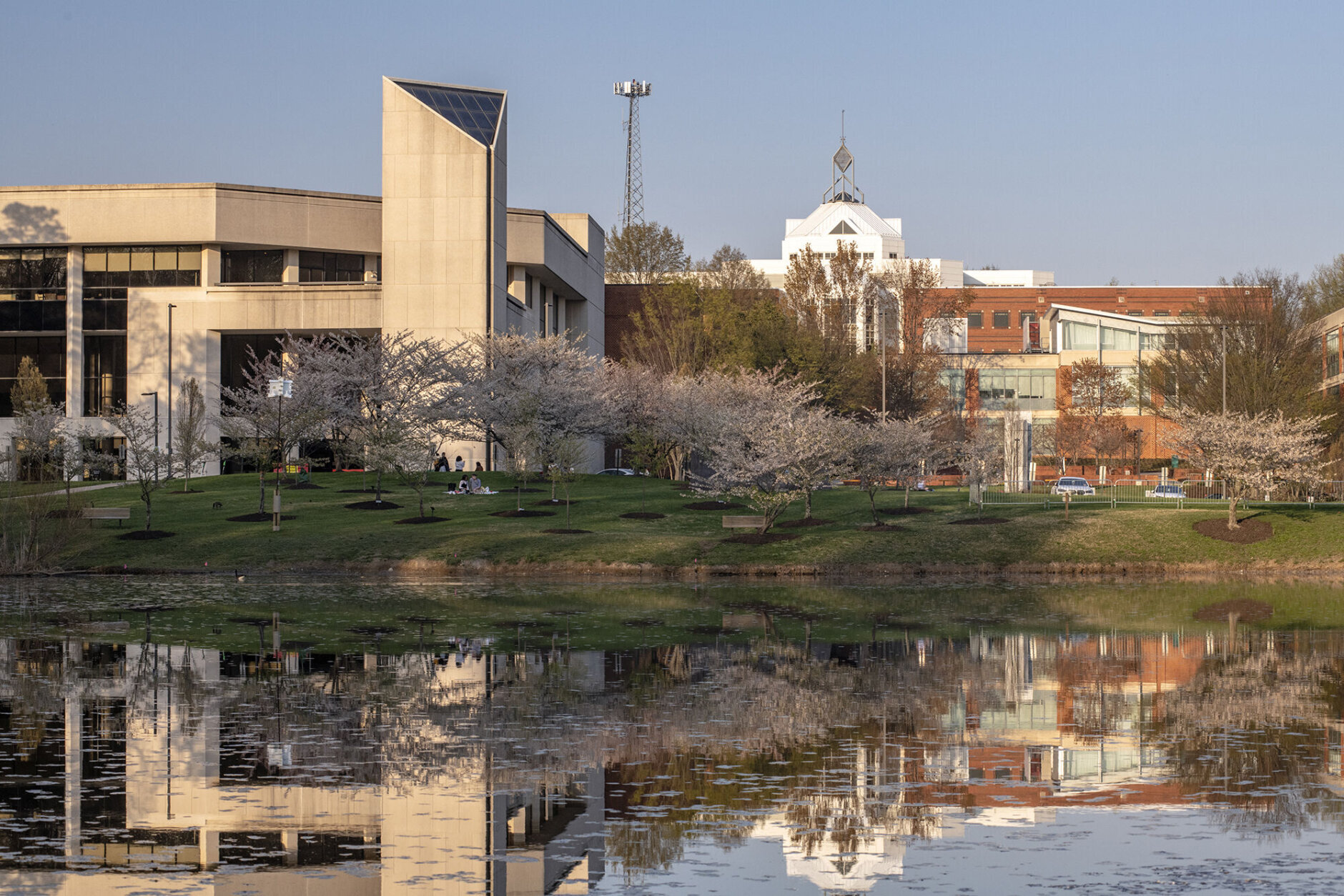
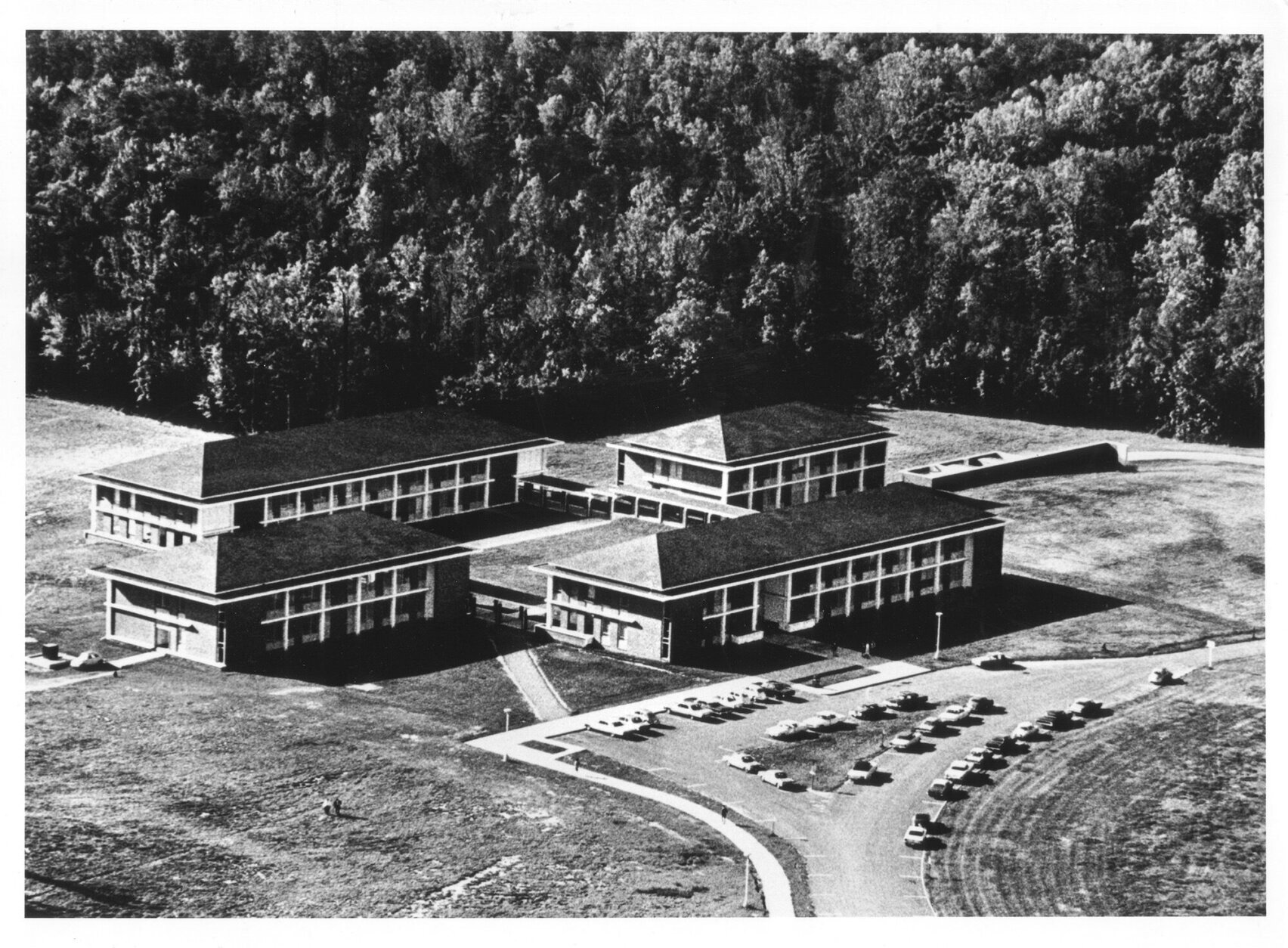
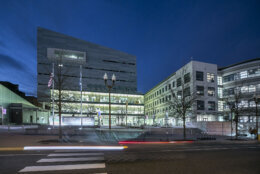
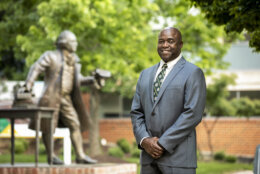
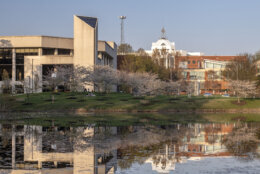
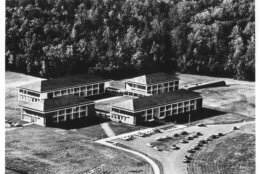
When people think of universities in the D.C. area, big names such as Georgetown and George Washington University might come to mind. But there’s another George in the area, and it’s celebrating a big milestone this year.
George Mason University, Virginia’s largest public research university, turns 50 in 2022 and is celebrating an impressive array of stats it has racked up over the half-century, including:
- An enrollment of 39,000 students, representing 130 countries.
- More than $200 million in George Mason-sponsored research in 2020.
- A student employment rate of 80% within six months of graduating.
- A No. 9 ranking among public institutions for innovation in U.S. News & World Report’s 2022 rankings of best colleges, and No. 18 nationally.
- Six GMU programs in the top 100 best colleges rankings, including engineering, which rose 16 spots in the past year.
- The first university in the country to offer doctoral programs in conflict resolution, information technology, bioinformatics and computational social science.
- No. 1 in Virginia for ethnic diversity.
But Gregory Washington, the university’s first Black president, knows that George Mason might not have the same name recognition as other area universities — and that the competition for recognition is fierce.
“The biggest challenge … is just getting above the noise in the community,” he told WTOP.
“There are at least, at least, 18 other universities within a 30-mile radius of our campus … there are just so many in and around our area, and everybody is trying to do great things,” he said.
“But we think we have a unique mission, and there aren’t many universities who are structured to engage the masses. And I believe that getting the message out of the impact that we have been having, and the impact that we hope to have in the future, it’s not just critical for our institution, but in my opinion is actually critical for the region.”
Higher education for the masses
That impact revolves around making higher education accessible to everyone.
“We admit about 90% of the students now who apply, and usually that’s frowned upon by universities, because if you admit that high, you can’t graduate many of those students, but we graduate more than 73% of the students who come to Mason,” Washington said.
For those who opt not to go to college, Mason manages 27 small-business development centers throughout the state to support budding entrepreneurs.
“I think this is a part of the legacy of universities going forward. We’re going to have to be economic engines,” Washington said.
For Washington — who launched his academic career in 1995 as an assistant professor in the Department of Mechanical and Aerospace Engineering at Ohio State University, eventually becoming dean of engineering for the University of California — that means preparing students for the knowledge-based, digital economy of the future.
He said there are 10 million unfilled jobs in the country, but only about 6 million people unemployed. To fill the gap, the university launched the Mason Talent Exchange, which surveyed the 10 most-requested jobs in the D.C. region via job postings, “and then based on that, we developed certificate programs and educational programs around those areas of need.”
“And we’ve been engaging companies and say, ‘Look, if we can find a cohort of educated people who are interested and have the prerequisite background for these areas where you post the jobs … would you be willing to consider and hire them?’ And so that matchmaking process is happening as we speak.”
Real-world learning is key. As part of the university’s conservation partnership with the Smithsonian, for instance, students keep an eye on elephants at the National Zoo. Other students are using 3D printing to build a solar-powered car.
But such experiences have been curtailed by the pandemic. Washington said the university, which is now conducting 65% of its classes in-person, with about 35% still virtual, has learned that students were “clamoring” to get back on campus.
They were not, however, necessarily clamoring to be in class at 8 a.m. in the morning, he said with a laugh, “so we’re starting to gravitate toward a new norm where we’ll have this hybrid mixture of online classes and in-person classes and classes that actually are both.”
Keeping costs down
All of the pandemic-inspired advancements in education don’t mean much if a student can’t afford that education to begin with.
With so many Americans priced out of college, Washington said the university developed the Mason Virginia Promise, which offers a guaranteed pathway to a bachelor’s degree or help starting a business for every Virginian who wants one.
“Our philosophy is this: If you can’t afford to go to school, we should be providing you an opportunity to go to school,” Washington said, adding that Virginia defines the low-income level for a family of four at around $53,000 a year. “So our goal is to say, ‘If you make $60,000 or less, then you won’t pay tuition and fees at George Mason.”
To do that, though, it needs the state’s help. Washington explained that a common misconception in public education is that tuition varies across states. In truth, faculty salaries and other costs are relatively similar.
“What’s different across the country is state support, and that’s what makes a big difference.”
And that’s where Virginia is falling behind.
“Right now, it’s sitting on the books that the state should cover two-thirds of the cost of tuition for students, and the family should cover one-third. Well, right now in our state, the families cover two-thirds and the state covers about a third,” Washington said. “And so we haven’t funded higher ed like we needed to, and Virginia in particular has not done as good a job as some other states.”
Washington said he’s hopeful, though, that the new governor, Glenn Youngkin, will continue making education a priority.
He pointed out that Virginia boasts a high college graduation rate, “so higher ed has done very, very well, despite some of the challenges in funding support. And I know our new governor recognizes this, and I’m really hopeful that some of the long-term funding challenges will be resolved.”
‘Majority-minority campus’
Affordability is key not only to boosting access to higher education, but also increasing diversity, and on that front, Mason was ranked the most diverse university in Virginia by U.S. News & World Report.
“We are what is called a majority-minority campus. That means that no one group has more than 50% of the population. And so … everybody is represented here. We love that. It also means that we have a strong culture of inclusivity, and that diversity is not just in racial and ethnic groups, but it’s also in thought,” Washington said.
He cited the Carter School for Peace and Conflict Resolution, named after former President Jimmy Carter and his wife Rosalynn, both progressive advocates, and the law school named after the late Supreme Court Judge Antonin Scalia, a scion of conservatism.
Washington said that students today will encounter “unprecedented challenges” such as the global debate over whether democracies are better than autocracies.
“At no other time in my lifetime do I remember that discussion,” he said. “Our students are going to have to deal with climate change, our students going to have to deal with economic and wealth disparities, all of which our generation and generations previously have created.”
While he calls it a daunting task, Washington said he’s excited about Mason’s role in tackling those challenges. The university, which is headquartered in Fairfax and has satellite campuses in Arlington and Manassas and another in South Korea, will be highlighting its past and future contributions for its 50th-anniversary celebrations, which ramp up this spring. That includes construction of a 400,000-square-foot building on the Arlington campus that will support Mason’s School of Computing and other innovation initiatives.
More Cinderella moments
Washington hopes such initiatives will further boost George Mason’s name recognition. In the meantime, he still has people asking him about the time his university became a household name in 2006, when its men’s basketball team skyrocketed to the Final Four in the NCAA tournament.
When it comes to March Madness, Washington said with a laugh that he “would love nothing more to hear someone say, ‘Who’s the next George Mason?’ — and have that answer be George Mason. We’ve got a ways to go, but I believe in that too.”

